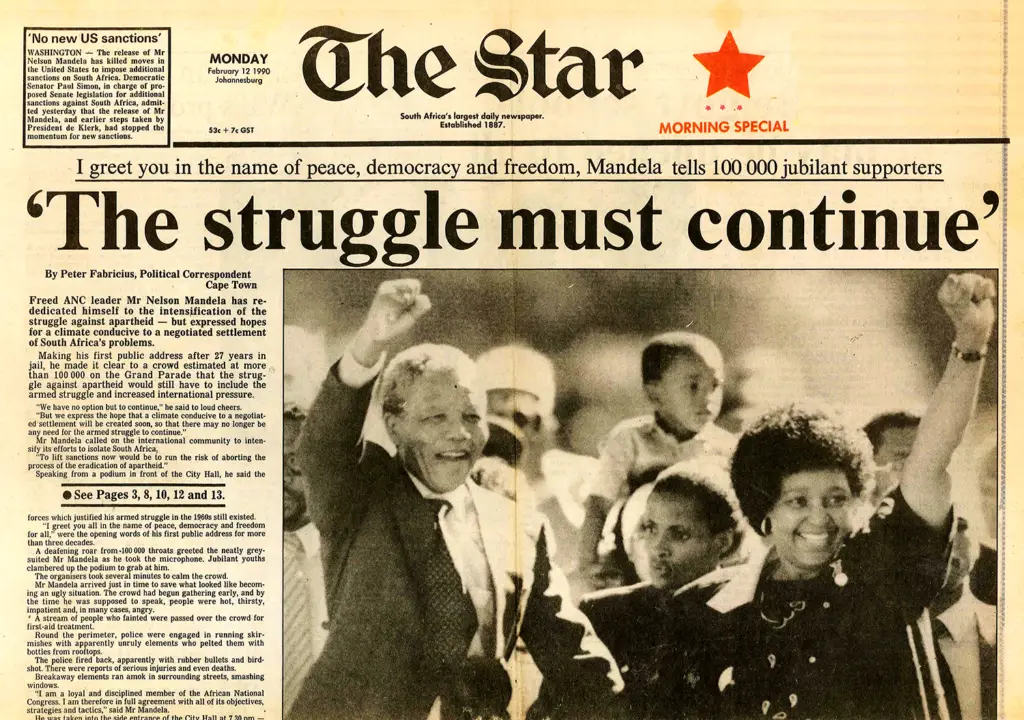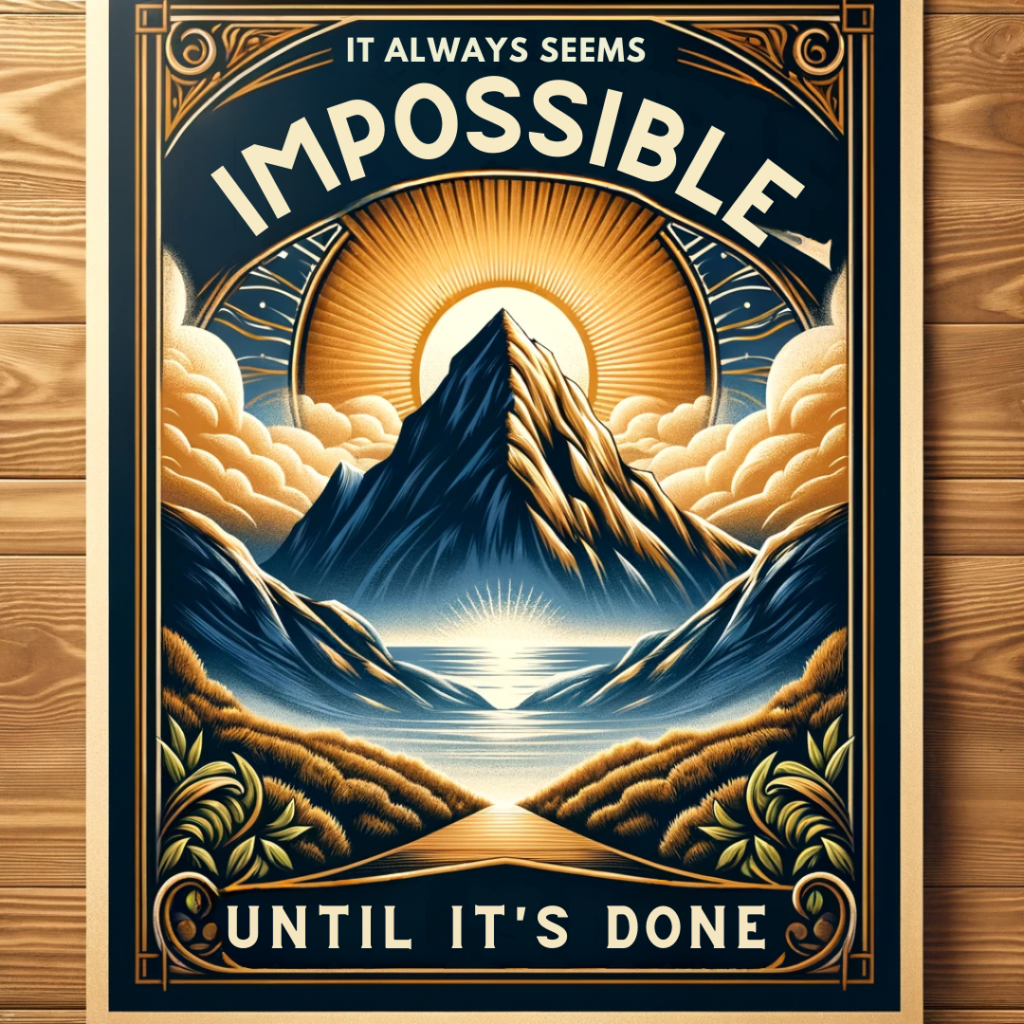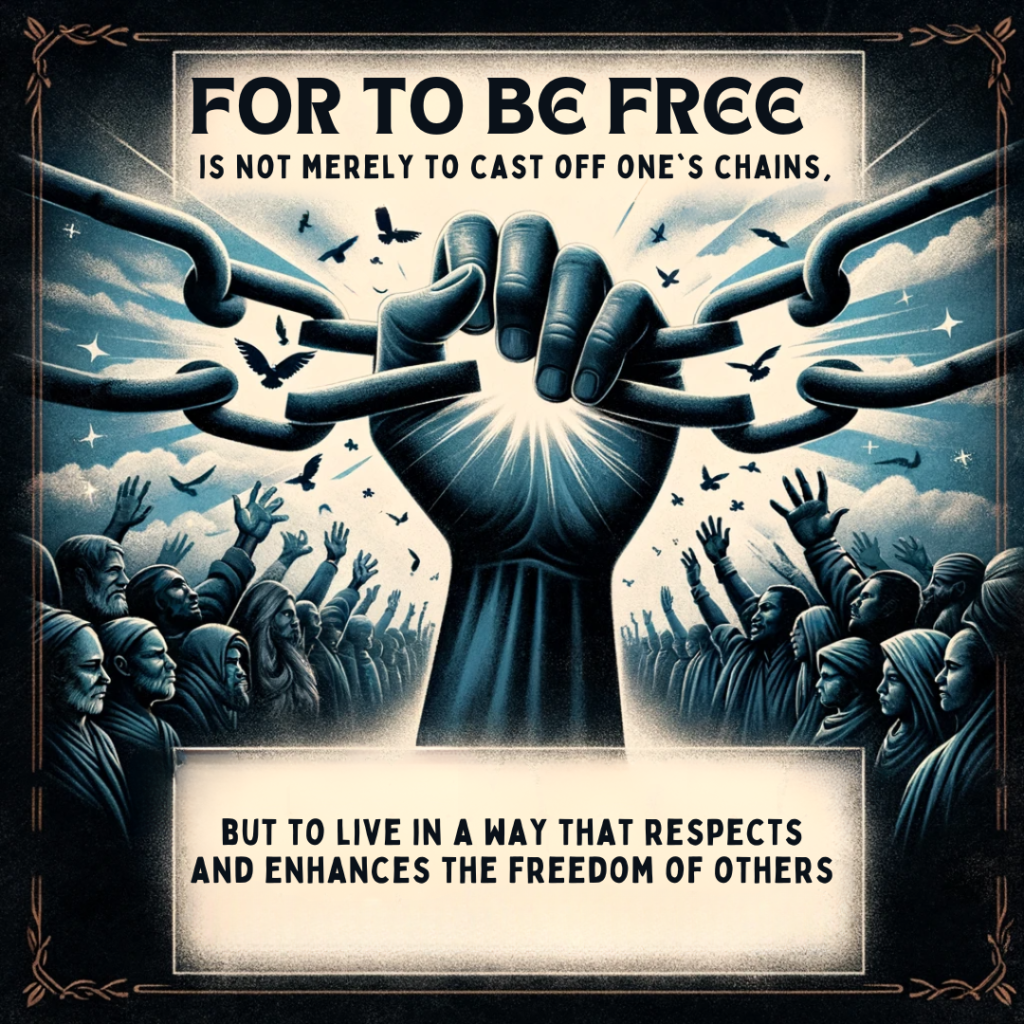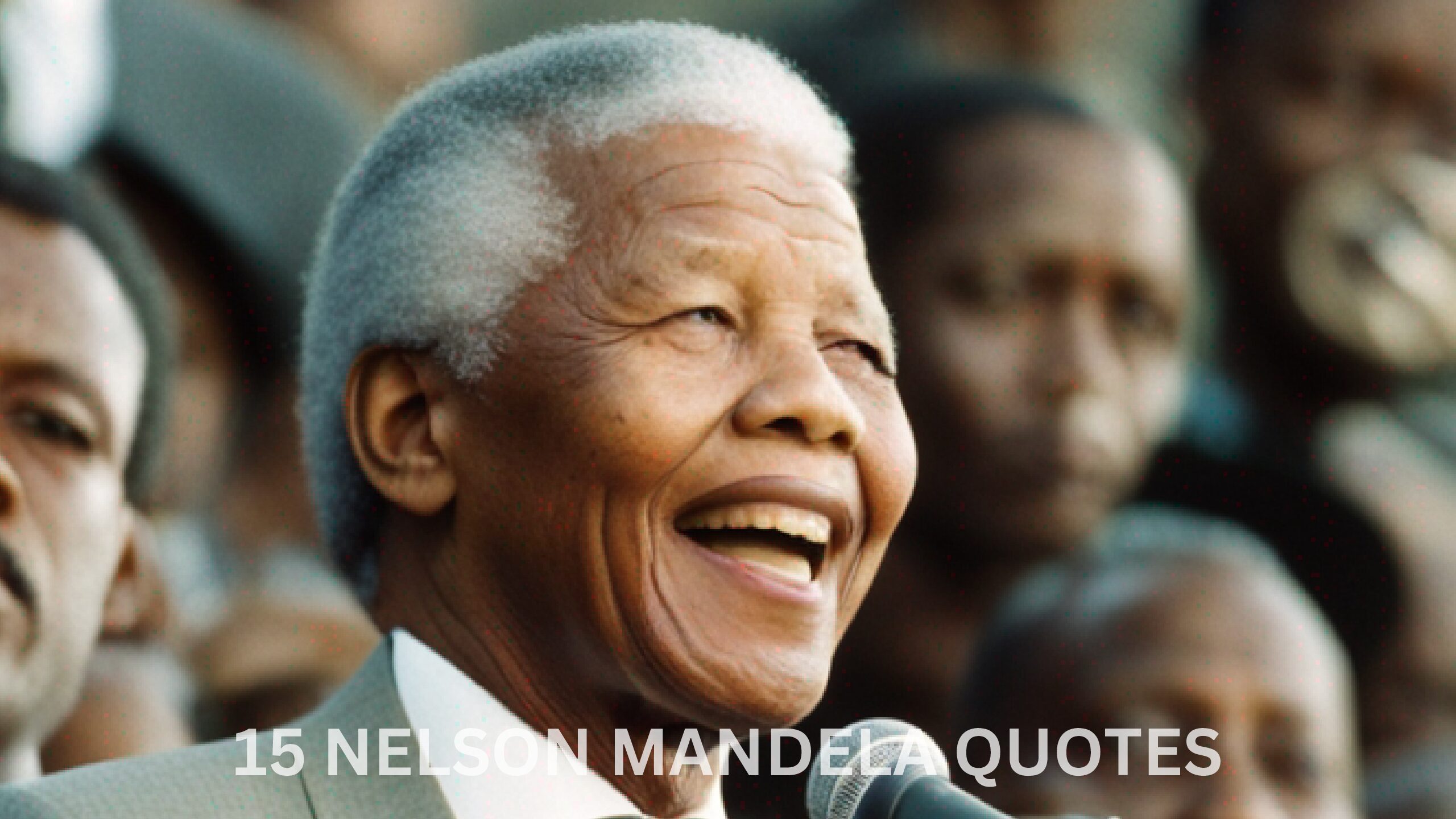Nelson Mandela’s legacy transcends borders, embodying the fight for fairness and the pursuit of equality. His journey from an anti-apartheid crusader to the first black President of South Africa stands as a beacon of relentless determination and hope. Mandela’s words, rich in wisdom and eloquence, continue to inspire and guide countless individuals worldwide. In this blog, we explore 15 poignant Nelson Mandela Quotes, each accompanied by its unique context. These quotes not only mirror Mandela’s life and convictions but also offer enduring insights into resilience, leadership, and the indomitable human spirit.

Table of Contents
Full Name: Nelson Rolihlahla Mandela
Born: July 18, 1918, in the village of Mvezo, South Africa
Died: December 5, 2013, in Johannesburg, South Africa
Nelson Mandela was a South African anti-apartheid revolutionary, political leader, and philanthropist. He served as the President of South Africa from 1994 to 1999, becoming the country’s first Black president after the end of apartheid. His leadership, resilience, and commitment to justice made him an international symbol of resistance to oppression.
Early Life & Education
Mandela was born into the Thembu royal family. He attended the University of Fort Hare and the University of Witwatersrand before working as a lawyer in Johannesburg. During this time, he became involved in the African National Congress (ANC) and its fight against the racially discriminatory policies of apartheid.
Key Accomplishments & Achievements
- Anti-Apartheid Activism: Mandela was a prominent figure in the ANC, and he fought against South Africa’s system of racial segregation known as apartheid. He helped form the ANC’s armed wing, Umkhonto we Sizwe, in 1961.
- Imprisonment: Mandela was arrested in 1962 and sentenced to life imprisonment for his involvement in planning acts of sabotage against the apartheid government. He spent 27 years in prison, mostly on Robben Island, before his release in 1990.
- Negotiating End of Apartheid: After his release, Mandela led negotiations with the apartheid government, culminating in the dismantling of apartheid laws and the establishment of multiracial elections in 1994.
- First Black President of South Africa: In 1994, Mandela became South Africa’s first Black president after leading the ANC to victory in the first fully representative democratic elections.
- Reconciliation Efforts: Mandela prioritized national reconciliation, famously advocating for peace between South Africa’s divided racial communities. His work in creating the Truth and Reconciliation Commission helped to heal the country’s wounds.
- Global Icon of Peace and Human Rights: Mandela became a global symbol of resistance to oppression, inspiring movements for freedom and justice around the world. He was awarded the Nobel Peace Prize in 1993 for his efforts to end apartheid and bring peace to South Africa.
- Philanthropy: Post-presidency, Mandela focused on global peace efforts and initiatives related to HIV/AIDS, education, and poverty. His Nelson Mandela Foundation works to combat poverty and promote social justice.
15 Inspirational Nelson Mandela Quotes
1. “It always seems impossible until it’s done.”

This quote encapsulates Mandela’s unwavering belief in the power of perseverance. It reflects his long struggle against apartheid in South Africa, a battle many thought was impossible to win.
2. “Education is the most powerful weapon which you can use to change the world.”

Mandela, who valued education highly, believed it was a crucial tool for empowering individuals and transforming societies. This belief was shaped by his own journey of self-education and his understanding of social dynamics.
3. “I learned that courage was not the absence of fear, but the triumph over it.”

Mandela’s life was marked by courageous actions, despite facing immense fear and danger, especially during his anti-apartheid activities and his 27 years in prison.
4. “For to be free is not merely to cast off one’s chains, but to live in a way that respects and enhances the freedom of others.”

This quote reflects Mandela’s deep understanding of freedom, shaped by his struggle against apartheid and his tenure as South Africa’s first black president, focusing on reconciliation and inclusive freedom.
5. “The greatest glory in living lies not in never falling, but in rising every time we fall.”

Mandela’s resilience in the face of repeated setbacks, both personally and in the anti-apartheid movement, is the essence of this quote.
6. “A good head and a good heart are always a formidable combination.”

Mandela, known for his strategic acumen and compassionate leadership, believed in the balance of intellect and empathy in effective leadership.
7. “Money won’t create success, the freedom to make it will.”

Reflecting on economic freedom and empowerment, Mandela emphasized the importance of creating environments where individuals can achieve success, a principle he advocated during his presidency.
8. “I am not a saint, unless you think of a saint as a sinner who keeps on trying.”

This quote shows Mandela’s humility and his acknowledgment of his own imperfections, despite being widely revered.
9. “Resentment is like drinking poison and then hoping it will kill your enemies.”

Stemming from his commitment to forgiveness and reconciliation, this quote highlights Mandela’s belief in the futility of holding onto bitterness.
10. “To deny people their human rights is to challenge their very humanity.”

As a lifelong defender of human rights, Mandela’s experiences under apartheid fueled his commitment to ensuring respect for human dignity.
11. “There is no passion to be found playing small – in settling for a life that is less than the one you are capable of living.”

Mandela’s own life, marked by his refusal to accept injustice and mediocrity, is a testament to this belief in pursuing one’s potential.
Nelson Mandela’s time in prison was one of the most defining chapters of his life and the struggle against apartheid. He was incarcerated for a total of 27 years, from 1962 to 1990, and during this time, he became an international symbol of resistance and an enduring figure in the fight for freedom and equality. Below is an overview of his life in prison, the conditions he endured, and how he emerged as a leader who would help lead South Africa to its first democratic elections.
Arrest and Imprisonment (1962-1964)
Mandela was arrested in 1962 for leaving the country without a passport and for inciting a strike. In 1964, while standing trial for his involvement in anti-apartheid activities, he was convicted of sabotage and conspiracy to overthrow the government in what became known as the Rivonia Trial. At the trial, he famously delivered a speech that was to become one of his most iconic statements, declaring:
“I have fought against white domination, and I have fought against black domination. I have cherished the ideal of a democratic and free society in which all persons live together in harmony and with equal opportunities. It is an ideal which I hope to live for and to achieve. But if needs be, it is an ideal for which I am prepared to die.”
He was sentenced to life in prison and sent to Robben Island, a notorious maximum-security prison off the coast of Cape Town, where he would spend the first 18 years of his incarceration.
Life on Robben Island (1964–1982)
Robben Island was infamous for its harsh conditions. Mandela and his fellow prisoners were subjected to hard labor, cramped and unsanitary living conditions, inadequate nutrition, and isolation from the outside world. The apartheid authorities intended to break their spirit, but Mandela and his comrades resisted.
Prison Conditions:
- Labor: Mandela and other political prisoners were assigned to hard labor, primarily in a limestone quarry. Mandela, due to his status as a leader, was kept in solitary confinement for long periods and only had minimal contact with his fellow prisoners.
- Living Conditions: Prisoners were housed in tiny, barren cells. Mandela’s cell was very small—about 7 feet by 9 feet—and furnished only with a straw mat, a blanket, and a bucket for sanitation. They were allowed few possessions, and reading materials were severely restricted.
- Physical and Psychological Abuse: Prisoners were subjected to regular humiliation and physical abuse by guards. They were allowed minimal contact with their families, and visitation was restricted, especially in the earlier years. For instance, Mandela was not allowed to see his wife, Winnie Mandela, for several years.
- Censorship and Limited Education: For years, Mandela and his fellow prisoners had no access to newspapers or media. The authorities tried to keep them isolated from the developments outside the prison walls. Despite this, Mandela remained an avid reader and used his time in prison to study various subjects, including law, history, and African culture.
Building Unity and Resistance:
Even in such oppressive conditions, Mandela managed to maintain his resolve and used his time in prison to foster unity among the political prisoners. He worked on building solidarity among the various anti-apartheid factions within the prison, advocating for unity within the African National Congress (ANC) and between different racial groups.
He and his fellow prisoners also engaged in acts of resistance, such as organizing hunger strikes to protest poor conditions or demanding better treatment and educational opportunities. Mandela’s leadership in these efforts earned him respect, not only from his fellow inmates but also from his enemies.
Sent to Pollsmoor Prison (1982–1988)
In 1982, after 18 years on Robben Island, Mandela was moved to Pollsmoor Prison in Cape Town. The authorities hoped this move would break Mandela’s spirit, but it only enhanced his position as a leader in the struggle. Here, his communications with the outside world, including his family and ANC leaders, increased, and he began to receive more visitors. However, he was still held in strict isolation.
During his time at Pollsmoor, Mandela continued to correspond with the ANC leadership and was increasingly seen as the key figure for negotiations with the apartheid government.
Victor Verster Prison and Negotiations (1988–1990)
In 1988, Mandela was transferred to Victor Verster Prison, which was a more relaxed facility. By this time, his health had begun to deteriorate due to the harsh conditions of the previous years. Nonetheless, Mandela continued to negotiate with the apartheid government, even though talks were fraught with difficulty. The decision to release him was influenced by growing international pressure on the South African government and the need to find a political solution to the escalating unrest.
Release from Prison (1990)
On February 11, 1990, after nearly three decades in prison, Mandela was finally released. His release came after the apartheid government, led by President F.W. de Klerk, realized that the old system was no longer sustainable. Mandela’s release marked the beginning of the end for apartheid. In his first speech as a free man, Mandela said:
“I have walked that long road to freedom. I have tried not to falter; I have made missteps along the way. But I have discovered the secret that after climbing a great hill, one only finds that there are many more hills to climb. I have taken a moment here to rest, to steal a view of the glorious vista that surrounds me, to look back on the distance I have come. But I can only rest for a moment, for with freedom comes responsibilities, and I dare not linger, for my long walk is not ended.”
Impact of His Prison Years
Mandela’s imprisonment had several significant impacts:
- Global Symbol: His time in prison transformed Mandela into a global symbol of resistance against apartheid. International campaigns, including boycotts and sanctions, were fueled by his imprisonment, and his image became associated with the struggle for freedom and human dignity.
- Political Leverage: His time in prison also gave him the opportunity to reflect, organize, and form strategic ideas about how to end apartheid peacefully. When he was released, he was ready to lead the negotiations for a peaceful transition to democracy.
- Personal Transformation: Mandela’s years in prison gave him an unparalleled perspective on leadership, patience, and the importance of forgiveness. Although he endured immense personal hardship, including the pain of not seeing his family for long periods, Mandela emerged from prison unbroken and with a deep commitment to reconciliation rather than revenge.
Mandela’s imprisonment, and the way he endured and transcended its hardships, became one of the key reasons he was able to lead South Africa through its transition to democracy. His moral authority, humility, and unyielding commitment to justice made him not only a symbol of resistance but also a statesman capable of guiding the country into the new era that would be characterized by unity and reconciliation.
12. “As long as poverty, injustice and gross inequality persist in our world, none of us can truly rest.”

Reflecting his global perspective, this quote underscores Mandela’s view that societal problems are a collective responsibility.
13. “A winner is a dreamer who never gives up.”

This quote mirrors Mandela’s relentless pursuit of his dreams, including the end of apartheid and the establishment of a democratic South Africa.
14. “After climbing a great hill, one only finds that there are many more hills to climb.”

This quote reflects Mandela’s realization, especially after becoming president, that achieving one goal often reveals further challenges.
15. “What counts in life is not the mere fact that we have lived. It is what difference we have made to the lives of others that will determine the significance of the life we lead.”

This quote encapsulates Mandela’s life philosophy, where he measured his life’s worth by his impact on others, a principle evident in his lifelong dedication to service and social justice.
Each of these quotes is a window into Mandela’s soul, his struggles, and his vision for a better world. They continue to inspire and guide people across the globe.
Quotes About Mandela
- Barack Obama:
“Nelson Mandela’s journey from prisoner to president embodied the promise of a new South Africa… and the triumph of justice over injustice.” - Desmond Tutu:
“He was not only a great leader, he was a very human person who understood suffering. And the way in which he bore his suffering gave hope to so many others.” - Bill Clinton:
“Nelson Mandela was a light for the world… a great leader who transformed his country and inspired millions to overcome adversity.” - Queen Elizabeth II:
“Nelson Mandela was an international hero, and his leadership and courage helped to dismantle one of the most unjust systems of government in human history.” - Kofi Annan:
“He was a man of great moral stature, a tireless fighter for freedom, and a champion of reconciliation. His legacy will be with us for generations to come.”
Legacy
Mandela’s legacy extends far beyond his presidency. He is remembered for his unwavering commitment to justice, equality, and reconciliation. His leadership not only transformed South Africa but also inspired movements for freedom and human dignity worldwide. His life and actions remain a powerful reminder of the importance of resilience, empathy, and the fight for a just world.
In conclusion, Nelson Mandela’s words are more than mere quotes; they are powerful echoes of a life lived with purpose and an unwavering commitment to justice and humanity. Each quote, rich with the wisdom gleaned from his extraordinary journey, offers us invaluable lessons in courage, compassion, and the relentless pursuit of equality. Mandela’s legacy continues to inspire and challenge us to look beyond our limitations and strive for a world where freedom and dignity are universal. As we reflect on these 15 Nelson Mandela quotes, we are reminded of the enduring impact of Nelson Mandela’s spirit, a guiding light in our collective quest for a better and more just world.
